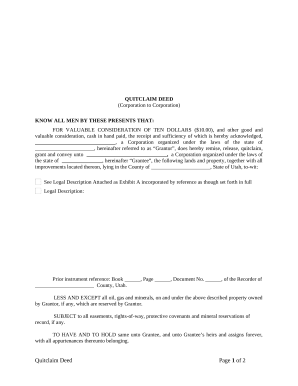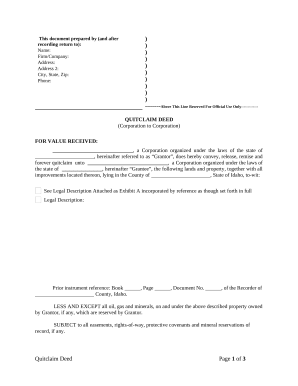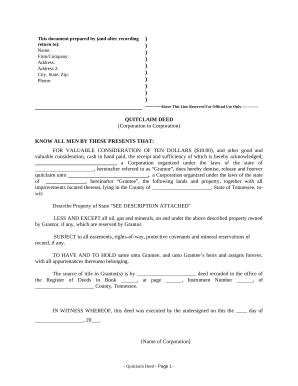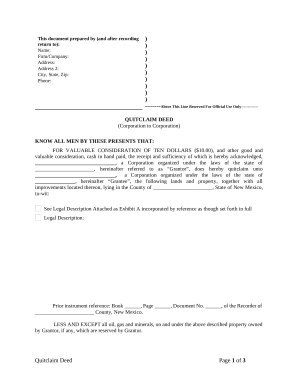





Document administration can overwhelm you when you can’t locate all of the forms you need. Luckily, with DocHub's extensive form library, you can discover everything you need and quickly handle it without the need of changing between software. Get our Corporation to Corporation Quitclaim Deed and start utilizing them.
Using our Corporation to Corporation Quitclaim Deed using these basic steps:
Try out DocHub and browse our Corporation to Corporation Quitclaim Deed category easily. Get your free profile today!